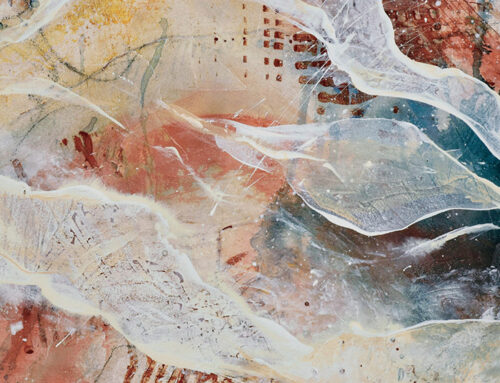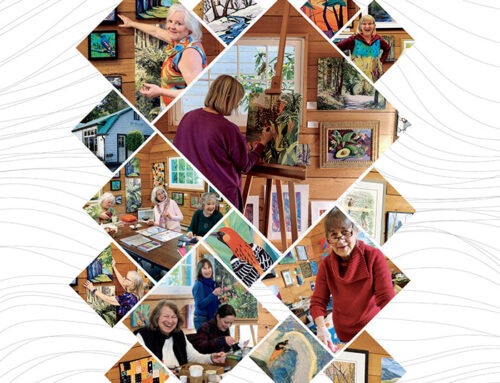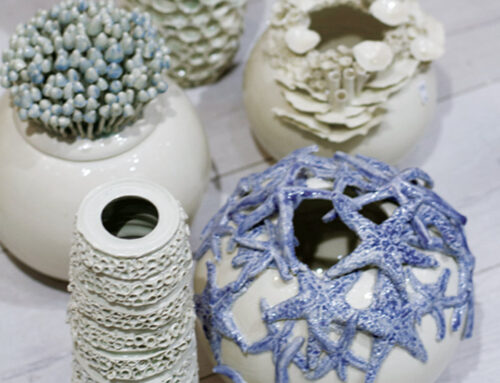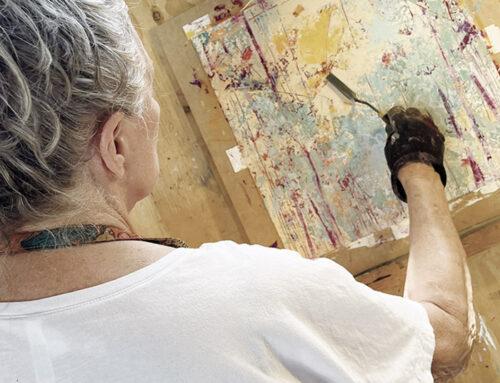Elizabeth Evans likes to paint stories. Her haunting and colourful pieces are full of meaning and really do suggest tales and places that invite the viewer to walk right into a narrative. “Place” features strongly in her work, which is always from memory, not photographs. And so she communicates to the viewer what stands out most for her in each place, be it a feeling, a colour, or an imagined tale. This makes her work both down-to-earth and dream-like. The Maritime series featured here is a good example.

“These are memory paintings from a visit to Nova Scotia when I was a girl. The trip are so vivid in my memory that I have been able to paint these mirror reflection scenes and many maritime scenes with variations on what I saw during that trip. It had a profound impact on me and what I wanted to convey in the paintings. Quiet solitude. Joyful, soulful, and reflective.”
If Evans’ work strikes a familiar chord it might be because she was mentored and taught how to paint by Arthur Lismer, a founder of the Group of Seven.
“My formal training was influenced heavily by Arthur Lismer, who taught me to paint with a big fat brush. Over the years that has stuck with me, even when I was doing very fine high-realism work. The Brickilism paintings (small bricks of colour) were influenced by the fat brush. These days I’m doing larger swatches of colour and form with a larger brush. Arthur is on my shoulder screaming at me to loosen up the brush strokes and grab a fatter brush.”
Asked about her collectors, Evans says that we on the Coast are pretty sophisticated.
“I think most of my collectors tend to like paintings that touch their soul—works that reach out and make it impossible for a collector not to own it. Most of my work is representational, but I’m finding that on the Coast, collectors are more sophisticated and are able to see the beauty and meaning in colour, shape, and form. They like my semi-abstract minimalist works.”
Her upcoming exhibition at WOW Gallery in Gibsons will showcase fifty years of her paintings.
Words | Nancy Pincombe






